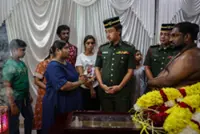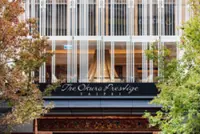Although growing up in a family of cooks in Penang had an influence on his decision to become a cook, Igor Ang didn’t plan on being “in the family business”.
However, three years ago, his (late) mother suggested that they pool their resources and start their own family restaurant. And that was how Madam Leow Restaurant, named after his late mother, Leow Long Choo, 71, came about.





